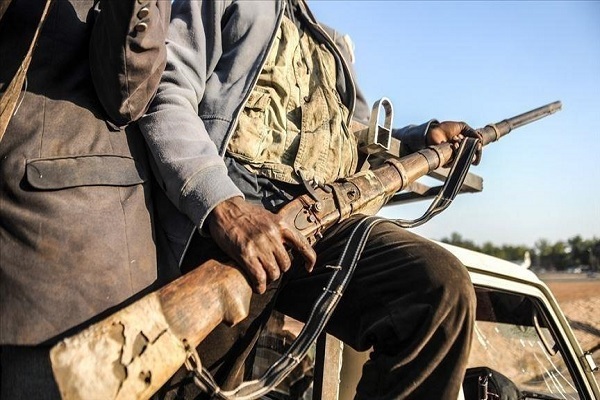Nigerians Challenge Trump’s Intervention Threat, Cite Attacks on Muslims

If the Nigerian government “continues to allow the killing of Christians,” Washington would immediately cut all aid and assistance to the West African country, Trump wrote on his Truth Social platform on Saturday, threatening that the US could go into “that now disgraced country, 'guns-a-blazing.'”
"I am hereby instructing our Department of War to prepare for possible action. If we attack, it will be fast, vicious, and sweet, just like the terrorist thugs attack our CHERISHED Christians!" he said.
In response to Trump's claims, Nigerian President Bola Ahmed Tinubu wrote on the US social media company X’s platform that he ignored the Nigerian government’s “consistent and sincere” efforts to protect freedom of religion and the beliefs of all Nigerians.
“Nigeria opposes religious persecution and does not encourage it. Nigeria is a country with constitutional guarantees to protect citizens of all faiths,” he said.
Nigeria, Africa’s most populous country, is home to around 220 million people and two major religions: Christianity and Islam.
Christians have historically played a prominent role in the country’s leadership, with a significant number of former presidents and senior bureaucrats coming from Christian backgrounds.
They remain an integral part of Nigeria’s national identity and its social, economic and political life.
‘No group is specifically targeted on religious or ethnic grounds’
The country’s population is roughly evenly split between Muslims and Christians, with about 50% identifying as Muslims, 45% as Christians, and the remainder adhering to traditional beliefs.
Muslims are primarily concentrated in the northern regions, while Christians are mostly found in the south and central parts of the country.
Reverend Yohanna Buru, a Kaduna-based cleric, told Anadolu that the attacks in the country are not religion-based.
“This issue is particularly severe in the northwest and north-central regions, but no group is specifically targeted on religious or ethnic grounds,” Buru said.
Read More:
Highlighting that it would be wrong to claim terrorists specifically set out to kill Christians, he said: “Everyone is being killed by these terrorist groups, and it’s still happening.”
“I have witnessed both mosques and churches being attacked, so if I said only Christians are targeted, I wouldn’t be honest,” he added.
‘Not an interfaith issue but one of governance, inequality, resource distribution’
In Nigeria, security is threatened by a mix of terrorist groups, including Boko Haram and the Daesh - West Africa Province (ISWAP), as well as armed gangs, ethnic militias like the Indigenous People of Biafra (IPOB), and herder-farmer conflicts often rooted in economic and social tensions.
Nigerian political scientist Abdullahi Musa explained that although Christians are targeted, Muslims bear the brunt of Boko Haram’s attacks in the same areas.
“This is not an interfaith issue but one of governance, inequality and resource distribution,” he highlighted.
According to the US-based Armed Conflict Location and Event Data Project (ACLED), there have been 1,923 attacks on civilian targets in Nigeria this year, with only 50 directly linked to Christian identity.
Read More:
ACLED noted that while insurgent groups often frame their campaigns as “anti-Christian,” the violence frequently makes no distinction and harms all communities.
Source: Anadolu Agency



